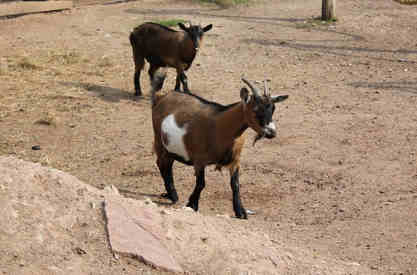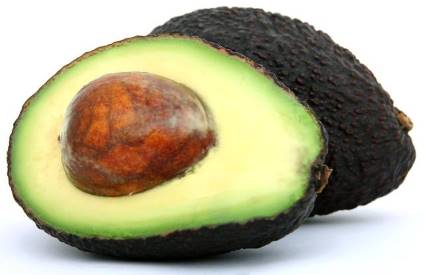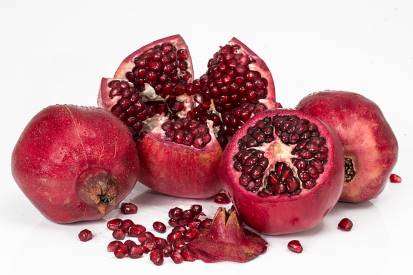When I first adopted my goats, I was thrilled by the idea of sharing my garden’s bounty with them. I’d often find myself wondering, can goats eat avocado? As someone who loves avocados, I was eager to let them enjoy this creamy fruit too. To my surprise, the answer was a resounding no. Goats, despite their notorious reputation for eating almost anything, should not be given avocados.
Diving deeper into my research, I learned that avocados contain a compound called persin, which can be toxic to goats. This realization made me cautious about every treat I considered sharing with my goats. As goat owners or enthusiasts, it’s crucial that we educate ourselves about the dietary needs and restrictions of our caprine companions.
So, whether you’re a seasoned goat farmer or someone who’s just considering adopting these playful animals, this article aims to shed light on why avocados aren’t suitable for goats and offer alternative fruits that can be safely shared with them. Let’s delve into the reasons and ensure the health and happiness of our goats.
Why Aren’t Avocados Safe for Goats?
Avocados, with their creamy texture and rich flavor, might seem like a tempting treat for our four-legged friends. However, when it comes to goats, these fruits pose several risks. Let’s explore the reasons why.
The Persin Problem
Avocados are packed with a compound named persin. While this fungicidal toxin might not bother humans and certain animals, it’s a different story for goats. Consuming even small amounts can lead to a range of health complications, the most severe being heart failure and, in extreme cases, death.
Fat Overload
Yes, avocados are a healthy fat source, but that’s from a human perspective. For goats, their high fat content—comprising over 75% of their weight—can be problematic. An excess intake can lead to obesity and related health concerns in goats.
Choking Hazard from the Pit
Beyond the chemical concerns, the physical structure of an avocado presents dangers. The sizable pit in the middle can be a choking threat to goats. If ingested, it could even lead to gastrointestinal blockages.
So, as sumptuous as they might be in our salads and on our toast, avocados are a food that goats are better off without.
[GoatAffiliate]
Can goats eat any part of the avocado plant?
When pondering the edibility of the avocado for goats, many might assume it’s only the fruit that poses a risk. However, the avocado tree and all its parts hold potential dangers for our caprine companions.
The main culprit behind the toxicity of avocados to goats is a compound named persin. Persin is a fungicidal toxin, and while its concentration varies across the plant, it’s present in every part of the avocado tree. Let’s break it down.
Leaves
The avocado tree’s leaves contain a significant amount of persin. Consuming these can lead to severe health complications in goats, including respiratory distress, and in some cases, even heart failure.
Bark and Stems
Although not typically a goat’s first choice, if they’re curious or other food sources are scarce, goats might nibble on the bark or stems. Just like the leaves, these parts also contain persin and are, thus, unsafe for consumption.
Fruit (Flesh and Skin)
While the creamy flesh of the avocado is what humans cherish, for goats, even this part can be harmful due to the presence of persin. The skin, too, holds this toxin and should be kept away from goats.
Seed
Aside from the inherent danger of the seed posing a choking hazard, it also contains persin, making it doubly risky.
Fallen or Rotten Fruit
Even if an avocado fruit has fallen and started to decompose, it remains unsafe. In fact, the concentration of persin can increase as the fruit begins to rot, presenting an even greater danger.
No part of the avocado plant is safe for goat consumption. It’s vital to ensure that if you have an avocado tree in or near an area where your goats graze, it’s fenced off or inaccessible to prevent any unintended snacking.
Other Foods That Are Harmful to Goats
In the diverse world of food, it’s essential to know that what might be delightful and nourishing to humans can sometimes be perilous for goats. Beyond avocados, several other foods can be detrimental to their health. Here’s a rundown of a few.
Cherry Pits
These pits are more sinister than they appear. Laced with cyanide, cherry pits can be lethal to goats. The cyanide content doesn’t stop at the pit either; even the leaves and stems of cherry plants possess it. It’s paramount to keep goats away from cherry trees, especially during fruit-bearing seasons.
Chocolate
While a treat for us, chocolates are a menace to goats. The culprit is theobromine, a chemical found in cocoa. Consumption can lead to a cascade of symptoms in goats, from vomiting and diarrhea to more severe reactions like seizures and heart irregularities. It’s a treat best kept on our shelves and out of their reach.
Potatoes
The green parts of potatoes and their sprouts contain solanine, a naturally occurring toxicant. In goats, solanine can wreak havoc on the nervous system, potentially causing paralysis. If you do decide to treat your goats with potatoes, ensure they’re fully cooked and devoid of any green spots.
Understanding the dietary restrictions of goats is vital for their well-being. While their diets might seem robust and all-encompassing, several common foods can be dangerous. Always research and ensure the safety of any new treat or food item before introducing it to your goat’s menu.
Alternative fruits that are safe for goats
The world of fruits is vast and diverse, offering a range of flavors and textures that even our four-legged friends can appreciate. While we’ve established that avocados are a no-go for goats, there are several fruits that not only are safe for our caprine companions but also can provide them with essential vitamins and hydration. Let’s explore some of these goat-friendly fruits.
Watermelon
Watermelon is a fantastic treat for goats, especially during hot summer days. Comprising mainly of water, it provides hydration and is a source of vitamins like A, B6, and C. The juicy red fruit (minus the seeds) is loved by many goats. Even the rind can be consumed, though in moderation.
Read More: Can Goats Eat Watermelon? 6 Amazing Benefits
Pineapple
Pineapple is rich in vitamins and minerals, and goats can enjoy it as an occasional treat. However, the bromelain enzyme present in pineapples might cause mild digestive upsets if given in large amounts. It’s best to feed them small portions and ensure the tough, spiky skin is removed.
Read More: Can Goats Eat Pineapple? 6 Amazing Benefits
Cantaloupe
Cantaloupe, like watermelon, offers a refreshing and hydrating snack for goats. It’s rich in vitamins A and C and provides dietary fiber. When feeding cantaloupe to your goat, ensure to remove the seeds, and it’s always a good idea to start with smaller portions to gauge their interest and tolerance.
Read More: Can Goats Eat Cantaloupe? 5 Important Benefits
Kiwi
Kiwi is a vitamin C powerhouse and can be a delightful treat for goats. However, because of its tangy nature and high acidity, it should be given sparingly. Remove the fuzzy skin before offering kiwi slices to your goats to make it easier for them to eat.
Read More: Can Goats Eat Kiwi? 6 Amazing Benefits
Pomegranate
Pomegranate is a nutrient-rich fruit that can be beneficial for goats when given in appropriate amounts. It’s packed with antioxidants, vitamins, and minerals. However, ensure you remove the harder outer skin and give them the juicy seeds. As always, moderation is key to avoid any potential digestive issues.
Read More: Can Goats Eat Pomegranate? 5 Amazing Benefits
Can goats eat avocado – final thoughts
Navigating the dietary delights and dangers for our caprine buddies can be a bit like solving a fruity puzzle. So, to answer the burning question, can goats eat avocado? – think twice! While avocados are our brunch favorites, they’re a no-no for our goat friends due to persin, fat content, and choking hazards. But despair not! The fruit world is still their oyster, with delicious alternatives like watermelon, pineapple, cantaloupe, kiwi, and pomegranate ready to treat their taste buds.
Let’s keep our goats gleeful and their tummies trouble-free by sticking to safe fruit treats. After all, a happy goat makes for a happy farm! So, next time you’re munching on avocado toast, remember: some treats are best kept to ourselves, while others can be a joyful share with our furry friends.
Related Articles:





